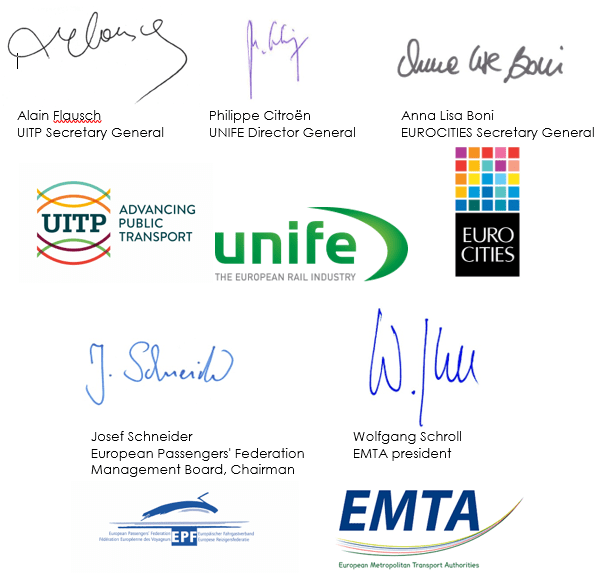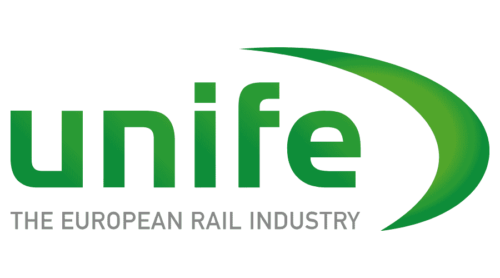UNIFE, UITP, EUROCITIES, EMTA, AND EPF PUBLISH OPEN LETTER TO DUTCH PRESIDENCY REGARDING UPCOMING INFORMAL JOINT MEETING OF EUROPEAN TRANSPORT AND ENVIRONMENT COUNCILS
The European Transport and Environment Councils will hold an informal joint meeting, entitled, “Innovating for the future: Smart and green solutions for sustainable transport” on 14-15 April in Amsterdam to discuss the future of European transport. In advance of this meeting, UNIFE has signed an open letter with likeminded associations UITP, EUROCITIES, EMTA and EPF to the Dutch Minister of Infrastructure and Environment, Melanie Schultz van Haegen-Maas Geesteranus, to encourage Ministers to look beyond a technical discussion and consider the role of modal shift in the decarbonisation of transport. This is especially important given the Communication of European Commission on Decarbonisation of Transport expected later this year. The content of the letter can be read below:
REF: Open Letter - Informal EU ministerial meeting of transport and environment ministers: Innovating for the future: Smart and green solutions for sustainable transport
Brussels, 1 April 2016
Dear Minister,
As proponents of environmentally-friendly public transport and rail solutions, we are very pleased to see that you are organising a joint Informal Transport-Environment Council meeting on ‘Innovating for the future: Smart and green solutions for sustainable transport’ during the Dutch Presidency of the EU on 14-15 April. However, we are concerned that the background documents for this meeting focus on the automotive sector (e.g., Background paper to the informal meeting of EU environment ministers on ‘Green Mobility’, ‘A vision on sustainable fuels for transport’, ‘Fuelling Europe’s Transport future: how auto innovation leads to EU Jobs’) and do not mention modal shift policy or other transport modes. Therefore, we are writing to request that when the Council reflects on the EU’s transition path to a low and zero emission road transport sector, the Ministers also consider the contribution of existing low carbon, sustainable rail and public transport solutions, as well as soft modes like cycling and walking.
The COP21 Paris Agreement represents an unprecedented breakthrough for action. There are a range of policies, measures and actions beyond fuel sources and technological developments in the automotive industry that are indispensable to decarbonising the transport sector. Policies and efforts that encourage a shift from higher emitting modes of transport like automobiles to low carbon urban public transport and rail solutions can and should also play a key role to reducing the carbon footprint of European transport. Realising this mitigation potential and harnessing the multiple co-benefits such as improvements in local air pollutants, energy security, de-congestion of roads, improved safety, job creation and increased overall mobility focused on the needs of citizens will be crucial. Therefore, any discussion on how to decarbonise transport must not be limited to a technological discussion but should also have a major emphasis on modal shift, as previously outlined in the European Commission’s 2011 White Paper on Transport.
It is fundamental that as the Informal EU ministerial meeting discusses a new, green chapter for the transport sector, it does so in the recognition that the greening of fuels and vehicles should be implemented in conjunction with a broader sustainable transport policy built around an “avoid, shift, improve” approach to sustainable transport. All three aspects are critical to facilitate a paradigm shift to reconcile transportation and climate change objectives.
We therefore kindly request you to underline the importance of this during the discussions at the Informal Council meeting. We thank you for your consideration and are at your disposal should you have any questions.
Yours sincerely,

